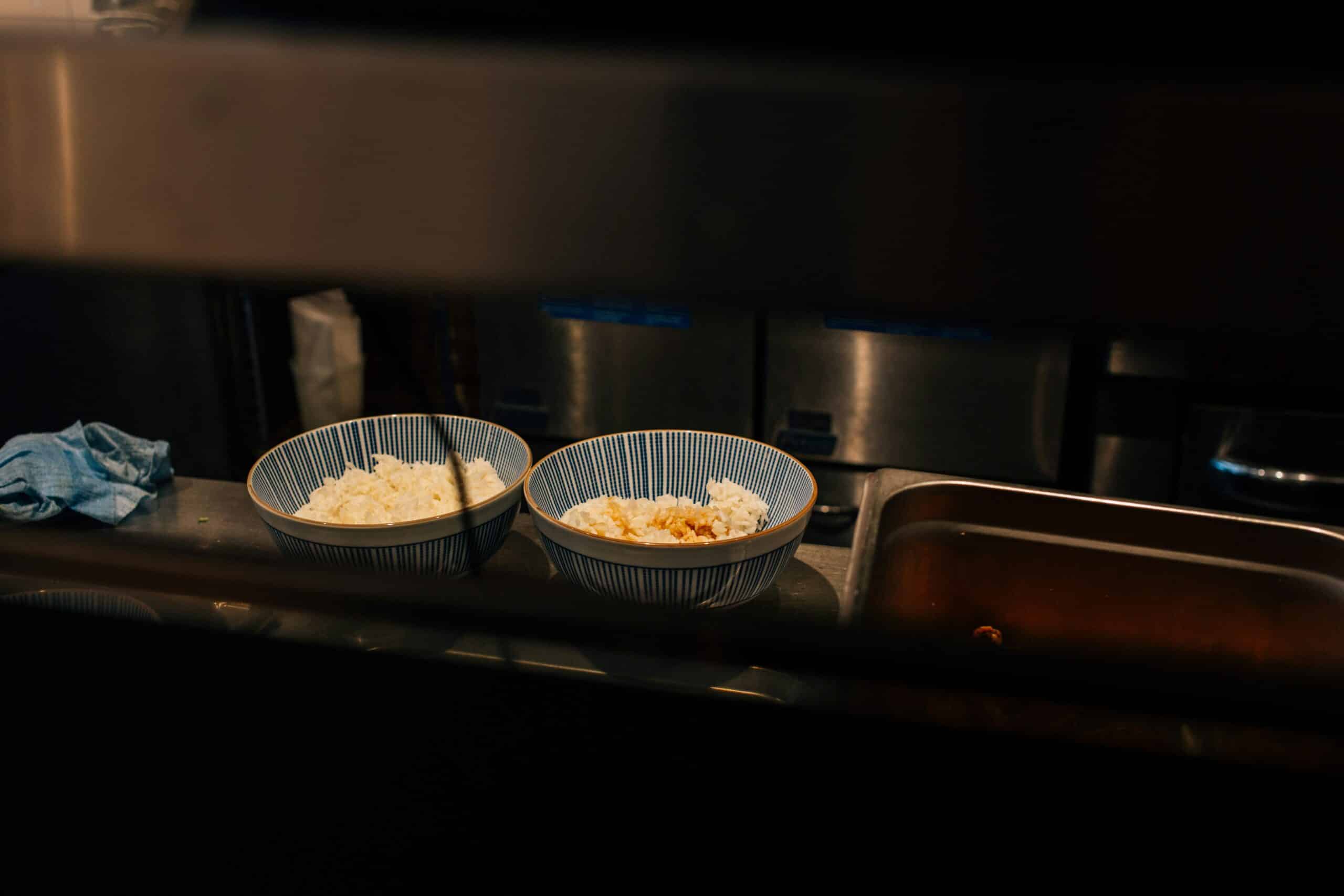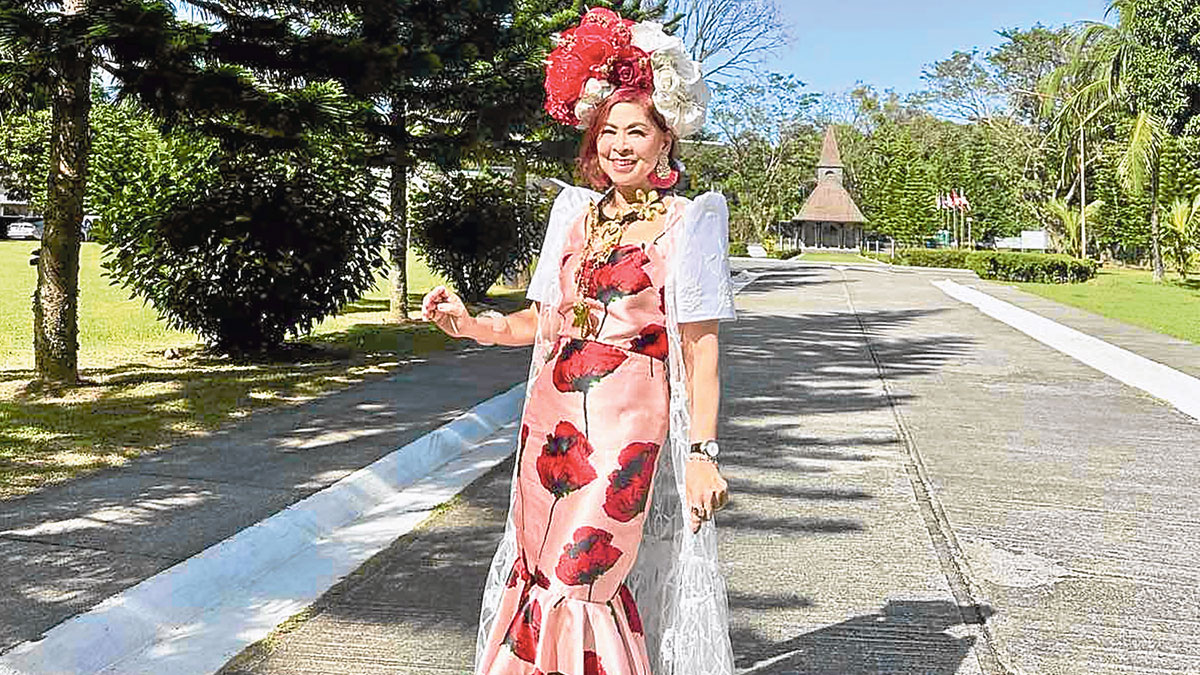
Tears come easily to Susan Roces these days.
After 55 years as a screen icon, you learn a thing or two about the craft of acting.
“Nowadays, I easily find myself teary-eyed, because I have become more sensitive and have focused more on emotions than appearance,” she says.
“Hindi baleng pangit ako, hindi baleng may wrinkles ako, hindi baleng mataba ako, ang importante sa akin yung ramdam ko ang ginagawa ko (It doesn’t matter if I’m plain, wrinkled or fat. What’s important is that I feel what I’m doing).”
She is, of course, exaggerating. Once promoted by her studio as “the face that refreshes,” she remains one of local filmdom’s best-loved stars, growing gracefully over a five-decade career from ingénue to romantic lead to character roles, much like her original inspiration, Gloria Romero.
Roces’ screen presence and dramatic skills add immeasurable gravitas to “Walang Hanggan,” ABS-CBN’s ongoing multi-generational teleseries where she plays Virginia Cruz, the long-suffering and self-sacrificing older sister.
But it’s not all acting.
One can sense a wellspring of real pain and loss that is never far from the surface. The slightest scratch and the emotions-and the tears-come bubbling to the surface, for real.

She is speaking in the second person, but there is little doubt who she means.
It’s been seven years since her husband, action king Fernando Poe Jr., was felled by a stroke, in the aftermath of a bitterly contested presidential election which—many still believe—should have raised him to the highest office in the land.
After Poe’s death, Roces emerged from the sidelines as the grieving widow, rallying her late husband’s supporters to carry on the struggle for justice and truth. If it hadn’t been all too real, it might have been her greatest role yet.
The drama is still unfolding like the convoluted plot of a telenovela, with FPJ’s arch-rival, former president Gloria Macapagal Arroyo now finding herself accused of electoral fraud, this time by her successor in government.
It might seem to be sweet vindication of FPJ’s claims, but Roces has eased herself out of politics and finally allowed herself time to grieve and to heal.
It’s still an ongoing process.
“After attending to all my responsibilities — to the government, to my loved ones, to others — I’m left thinking of myself,” she says. “That’s what usually happens-you think of yourself last. The best pain reliever is to keep yourself busy, doing things that are productive. I’m loneliest when I’m not productive.”

Can life really begin again, at 70?
“Life is more exciting at 70,” says Roces, after a moment’s reflection.
“Exciting because it makes me feel and think I could do things that I wasn’t able to do, especially in my career, when I was younger.”
She is talking not just about acting, but life in general, she clarifies.
“When you’re younger, you think of having children, building a family, providing a home for them. When you are a senior citizen, if you have planned ahead, you are prepared for all of that. You can start living the future that you prepared for.”
Susan Roces has had her share of tragedy and heartache, but on the whole, she has lived a charmed life.
Born Jesusa Purificacion Sonora on July 28, 1941 in Bacolod City, Roces seemed destined for the soundstage. She had lived a fairly sheltered life until a fateful visit to Sampaguita Studios, one of the so-called “Big Four” studios during the golden age of Philippine cinema, to catch a glimpse of her idol, Gloria Romero. She was only 15 years old, but herstriking mestiza features caught the eye of Dr. Jose “Doc” Perez, the head of the studio, who offered her a contract on the spot.
“I was fortunate that I was given a starring role almost immediately,” she recalls. The film was “Boksingera,” the year: 1956.
“However, they shelved it when it was finished, and made me do a role with Gloria Romero in ’Miss Tilapia.’ I was her alalay. That was where Romeo Vasquez and I were introduced.”
It was Perez who chose her screen name: Susan because he thought she bore a resemblance to actress Susan Magalona, and Roces because many of Sampaguita’s successful stars had names that started with RO: Romero, Rodrigo, Rodriguez, Romualdez.
In a matter of months, she had gone from gangly teen to budding star.
“Hindi nga ako makapaniwala,” she recalls. “It took a while before it sank in na artista na pala ako. Parang napakabilis. Ganyan madalas ang nangyayari sa buhay ko (I couldn’t believe it. Suddenly, I was an actress. Things went too fast. That’s how it often happens in my life).”
Those were different times, however.
“Busog na busog kami sa pangaral at sabon (We were weaned on good values),” she recalls. “One thing I appreciated about my producer is that they did not take advantage of my being young and naïve. Mrs. Dolores Vera was like our grandmother, Mrs. Nene Vera Perez like our mother, and Dr. Perez the father figure. So we had a family way ahead of the Kapamilya thing, in Sampaguita pictures.”
As in any family, there were rules: stars were expected to dress and act modestly and to behave like good children. Roces had originally planned to go on to college, study foreign service, and perhaps become a teacher. Instead, the movies became her university and the likes of Carmen Rosales and Dolphy became her mentors.
“I learned from them,” she recalls. “They were not selfish, they shared with us what they knew as far as performing was concerned. I learned a lot from Dolphy-the sense of timing in delivering a punchline. He would tell me, ’Huwag mong bilisan, dahan-dahan, pagdating sa dulo, saka mo ibigay (Start slow, but when you get to the end, spill it all).’ I still remember things that Carmen Rosales would tell me when I co-starred with her, and I eagerly listened to whatever she shared from her generation.”
Although her status was already assured, Roces’ star rose even higher after she married Fernando Poe Jr. in 1968, when she was 27 and he 30. The partnership made them the reigning King and Queen of Philippine Movies and one of the legendary love stories in local pop culture, all the more so for having its share of real-life drama.
Like any Filipino husband, FPJ had his share of fun. The story goes that one night, after staying out way beyond his curfew, FPJ came home with singer Rico J. Puno in tow. Puno was one of Roces’ favorite singers at the time, and Ronnie had brought him home to smooth out any ruffled feelings.
“That’s true,” Roces laughs. “Ronnie was a romantic person and he would serenade me. Rico Puno was still new then. Hindi niya makalimutan na dinala daw siya ni Ronnie sa bahay dahil ginabi siya ng uwi (He couldn’t forget how Ronnie brought him home to appease me because he came home late).”
Some of Poe’s indiscretions were, however, way beyond Rico Puno’s abilities to fix.
It is no secret that Poe had sired children with other women: a son, Ronian with actress Anna Marin, and daughter Lovi Poe with model Rowena Moran. It remains a touchy subject for Roces, but one that she cannot dodge now that Lovi Poe has embarked on a showbiz career of her own.
“They should not be blamed,” she says. “They did not choose to be born in that situation. Anong kasalanan ng mga bata (How can it be the children’s fault)? That’s why there is no hatred in my heart as far as they are concerned, but much hatred for their mothers, because they knew and they were aware of what they were doing. I cannot fault them solely –my husband was also responsible for his acts. So why will I hate the kids? They too are victims like me. But the parents had a choice. They were adults when they did that, and they knew what the probable aftermath would be.”
She adds: “On the other hand, I respect these children. I do not want to discuss them and they know that, so they do the same for me. They try not to use me or their relation to my husband, although they cannot really deny it.”
Ronnie’s affairs, she now admits, came close to destroying her marriage.
“They don’t realize it, but it could have destroyed me as a person,” she says. “What if, because of aggrieved emotions, I did something that would have hurt my husband, my daughter, my family.”
A vengeful Susan Roces might be hard for her fans to imagine, but not for Roces herself.
“It crossed my mind,” she says. “You hurt me, I could hurt you even more and I know how. But then I tell myself, in the process what do you do? You destroy yourself. So what saved me was, I loved myself. And now that I’m alone, I continue loving me even more. When you think of doing something you know is wrong, because you love yourself as God’s creation, you shy away from doing something bad. It’s really true –learning to love yourself is the greatest love of all.”
The couple weathered this stormy patch, and by the time Poe decided to throw his cowboy hat into the political arena, they were a solid team once more, even if Roces had entered political life with much reluctance.
“I didn’t like it, but our practice was, we would tell each other our plans. Ronnie explained to me why he was considering it, and I understood. He felt that he owed it to his public, who wanted some hope for tomorrow. He reminded me that we owed our comfortable lives to them. That was what inspired him to run.”
In any case, Roces would rather remember happier times with Ronnie, who remains an integral part of her life.
“I talk to him a lot. I would say sometimes, ’Pambihira ka, bakit ka umalis agad (Why did you leave so soon)? Why do I have to face all this? You did not only leave me all your wealth, you also left me all your problems.
“I still quarrel with him sometimes when I talk to him. I say ’See? You did not set much time for us to travel together, now you’ve traveled a long, long way without me.’
“I can sense that they really become your guardian angel,” she adds of people we love who have passed on. “Sometimes there are things that cross my mind. It would be nice to do this or that, I think, and what I had in mind happens for real. I say ’Siguro, binulong ng asawa ko sa Diyos. (Perhaps my husband whispered it to God).’ That’s how my life is now: things happen and I can strongly feel that (Ronnie) is just around.”
As she enters the sixth decade of her long career, Susan Roces counts herself blessed.
“I feel very lucky that in my lifetime I was able to experience the changes in local films,” she says. “From black and white to color, from the Mitchell camera to the Arriflex with the zoom lens.”
Of her films, the ones she is proudest of are the ones she made in the 1970s, when she was at her creative peak-“Maruja,” “Patayin Mo sa Sindak si Barbara,” “Gumising Ka Maruja,” “Nasaan Ka Nang Kailangan Kita.”
“If you are asking which of my movies I enjoyed, I enjoyed all of them, but as far as acting is concerned, these are the ones I recall immediately.”
Be that as it may, she is also happy that she is still able to practice and hone her craft.
“Through the years I have realized, hindi ka dapat umarte (you shouldn’t be acting); you just react to what is happening. Before, scripts were written—not all of the time but most of the time—without making sense. So it was difficult to act, to react to situations. Nowadays scripts are better written, storylines are discussed, and as an actor you are free to discuss your character. As an actor, I enjoy working better now.
“And on the glamor end, I am not restricted to that anymore because I don’t have to have a sexy figure for the roles I portray,” she laughs. “Kung masyado kaming sexy baka maging kompetensya pa kami ng mga young actors (If we were too sexy, we might end up competing with the younger stars).”
She is very much a role model and an inspiration for the younger actors she now works with, many of them young enough to be her grandchildren. She shies away from giving unsolicited advice, but goes out of her way to praise their performances if she finds them worthy. Above all, she remains a link to Philippine cinema’s golden age, when stars really glittered.
“I am a movie fan,” she says. “When I joined the movies, I was a fan of Gloria Romero. I continue to be a movie fan, not only of her but of other actors and actresses, young and old. Being a fan, you become more sensitive and you understand better the joy that you give in a simple picture.”
















































